Since we’re gonna be around all day to read, respond, and boost stuff on the fediverse… what are YOUR favorite things about GNOME? 👀
#GNOME #OpenSource #FOSS #Linux
Since we’re gonna be around all day to read, respond, and boost stuff on the fediverse… what are YOUR favorite things about GNOME? 👀
#GNOME #OpenSource #FOSS #Linux
LibreOffice 26.2 will be released as final at the beginning of February, 2026 ( Check the Release Plan ) being LibreOffice 26.2 Alpha1 the first pre-release since the development of version 26.2 started at the beginning of June, 2025.x1sc0 (LibreOffice QA Blog)
We’re 50% of the way to our goal for the end of the year! 🎉
Have you joined #FriendsOfGNOME yet? If not, this is your sign to join 750 other amazing supporters:
If so, help us keep up the momentum by sharing with your friends, especially those outside of the typical contributor community. Let’s end the year strong!
#FriendsOfGNOME #GNOME #GNOMEFoundation #OpenSource #FOSS #Linux
Fixing old Android code, integrating with the upcoming Thunderbird Pro, and making a balanced iOS roadmap are all part of our mobile development goals in 2026.
blog.thunderbird.net/2025/12/s…
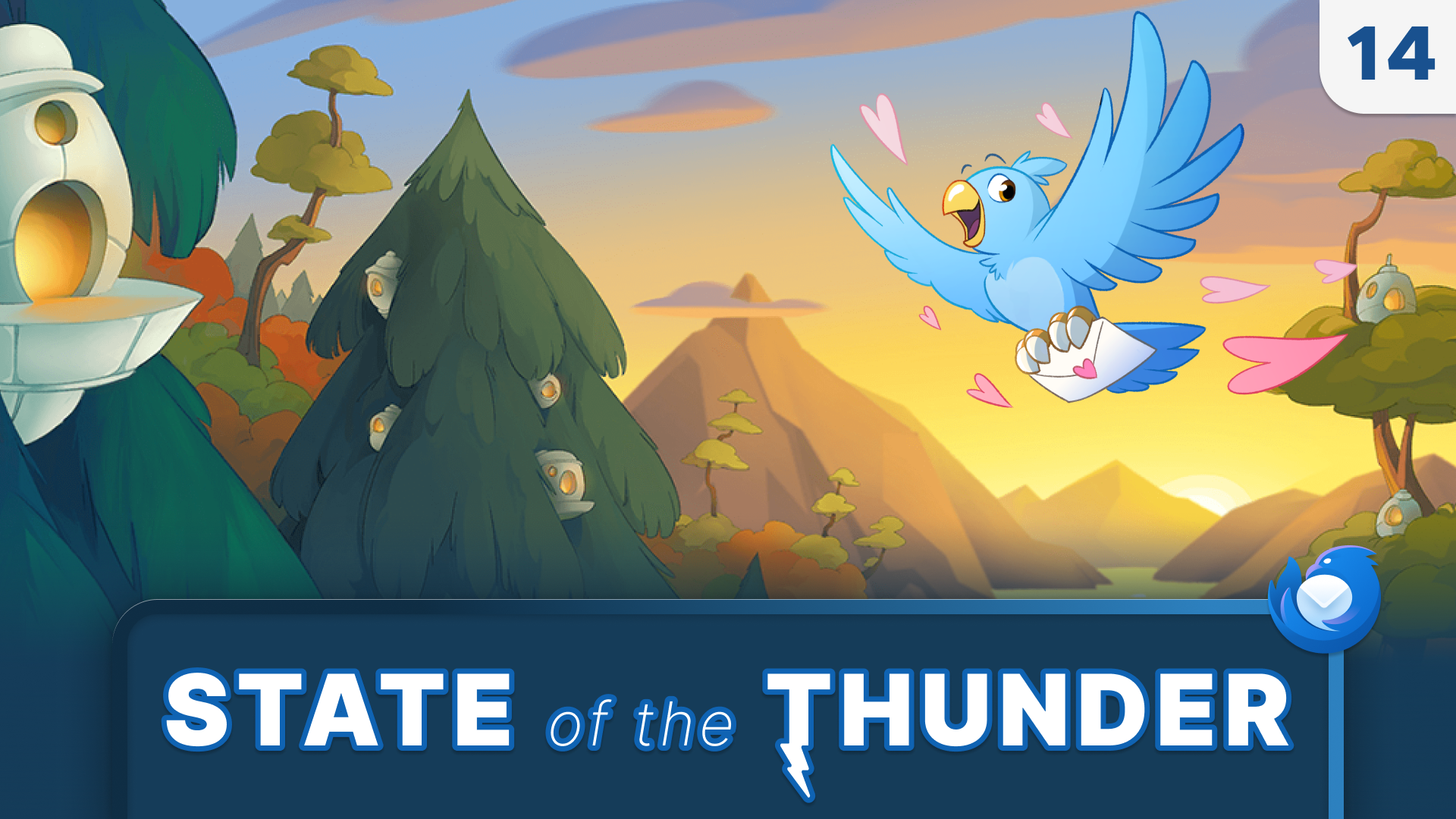
In the penultimate State of the Thunder for 2025, we're walking through our plans and priorities for the Android AND iOS apps in 2026.Monica Ayhens-Madon (The Thunderbird Blog)
We’re launching an end-of-year fundraising campaign with a simple goal: to reach 1,500 Friends of GNOME. And we need your help!
blogs.gnome.org/foundation/202…
This week we’ll also be sharing and celebrating accomplishments of GNOME over the past year here on the fediverse; be sure to follow #FriendsOfGNOME!
Finally, if you’re already a Friend of GNOME or join this month, please join us in posting with #FriendsOfGNOME as well so that we can thank you. 😊
#GNOME #OpenSource #FOSS #Linux #GivingTuesday
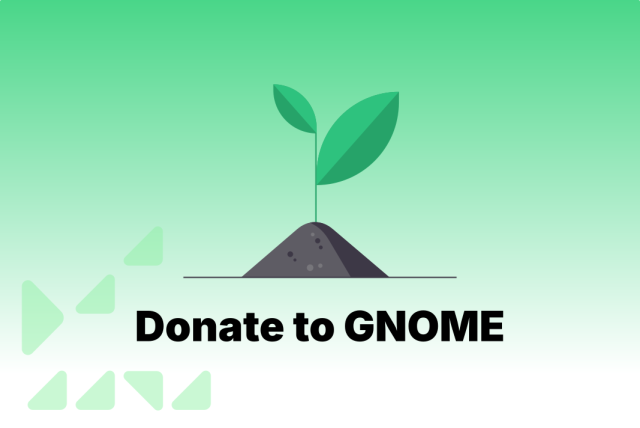
This post was contributed by the Fundraising Committee from the GNOME Foundation. This week we are launching an end-of-year fundraising campaign with a simple goal: to reach 1,500 Friends of GNOME...mariamaj (GNOME Foundation)
With modern kernels and mature desktop environments (GNOME/KDE), is X11 finally dead for your daily Linux workflow in 2026?
#linux #wayland #x11 #opensource #gnome #kde #fedora #debian #ubuntu #blender #linuxgaming #software #gaming #gamedev #gamingonlinux #games
The free software movement shaped by GNU/Linux reminds us that control over our digital tools is essential to our freedom. Today, at the heart of this ongoing struggle, Jami embodies this philosophy by offering a genuinely free way to communicate.
Read our article Jami and the GNU/Linux Spirit: jami.net/jami-and-the-gnu-linu…
Hi, around two weeks ago I started making Nexus, a Matrix client.
In these two weeks, I've made great progress, as you can see in the progress list.
However, I'd love some help implementing some features, or help with UI design, as it takes me quite a while to design a UI.
If you're interested, please reply!
Boosts appreciated! ❤️
Petition in Germany to recognize unpaid contribution to free and open source software projects as 'society-beneficial volunteering' (ehrenamt)!
This will give volunteering for e.g. @postmarketOS , @freifunk , @kde , @nextcloud , @Mastodon and other libre projects the same legal status as taking care of an elderly family member, which provides tax benefits and relaxes requirements for receiving unemployment benefits.
openpetition.de/petition/onlin…
English language version (only sign one version): openpetition.de/petition/onlin…
If you're not a resident of Germany, go ahead and use this thread to organize similar initiatives in your country of residence.
#deutchland #foss #floss #volunteer #ehrenamt #freiwilligkeit #openSource #freeSoftware
Tokyo, Japan – The LibreOffice Asia Conference 2025 is scheduled to take place on December 13-14, 2025, at the Internet Initiative Japan Inc. headquarters in Iidabashi Grand Bloom, Tokyo.Mike Saunders (The Document Foundation)
We’re also thankful for all of our Friends of GNOME who help keep the GNOME Foundation sustainable! The next time you see one of these 720+ outstanding individuals, join us in thanking them for directly supporting our vision of a world where everyone is empowered by technology they can trust:
donate.gnome.org/#friends-of-g…
#FriendsOfGNOME #FreeSoftware #OpenSource #FOSS #FLOSS #GNOME #Linux
Today we are thankful for each and every contributor to the Free and Open Source software that makes GNOME possible. ❤️ And of course, we’re extra grateful for the contributors to GNOME projects, tirelessly working to build and improve our diverse and sustainable personal computing ecosystem.
#FreeSoftware #OpenSource #FOSS #FLOSS #GNOME #Linux
Fundraiser news: Adopt a KDE dragon!
10 KDE dragons turned up on our doorstep today looking for families to adopt them. Contribute €100 or more to our fundraiser and one of these amigurumi cuties will go and live with you!
kde.org/fundraisers/yearend202…
All Konqis are hand-reared with care and love by a kind lady from Barcelona and are all different and unique.
#fundraiser #dragons #FreeSoftware #OpenSource
Help us bring KDE’s software catalogue into the mainstream! Plasma 6 is a stable, usable and accessible desktop environment that brings us closer to meeting the needs of private citizens, companies and public institutionsReaching the Inflection Point
I just submitted our talk proposal for @roost.tools to FOSDEM! If it’s accepted, you should come to hear about how we’re bringing the open source model to trust and safety, starting with the open source Osprey project that’s already being used in production across multiple large, well-known platforms. 👀
FreeBSD Now Builds Reproducibly and Without Root Privilege
We’re pleased to share that the FreeBSD Project now supports builds without requiring root privileges, removing elevated access from the release pipeline and improving overall security. This work was completed as part of a program commissioned by the Sovereign Tech Agency.
Read more: freebsdfoundation.org/blog/fre…
#FreeBSD #ReproducibleBuilds #OpenSource #Security
The FreeBSD Foundation is pleased to announce that it has completed work to build FreeBSD without requiring root privilege.Florine Kamdem (FreeBSD Foundation)
Hey all,
just a reminder that the CfP for #FOSDEM presentations officially ends on the 1st of December, and that applies to our Music Production devroom too. If you have cool stuff to talk about (and I know you do!) please do consider submitting!
Please boost for reach! No idea if I'm using enough hashtags to reach everyone, but feel free to add more if you can think of others 😁
#fosdem2026 #foss #music #production #musicproduction #opensource
Telegram, the cloud-based freemium chat, has now implemented strict rate limiting for users of alternative clients, VPNs and virtual phone numbers.
Clients like Nekogram, Nagram, Cherrygram and Unigram may show transmission delays or errors.
If your client had recently become slower, disable the VPN and use a real number.
#telegram #android #windows #linux #software #opensource #foss #cloud #im #chat #vpn
Finally, after some months of refining, the "Incremental System Rethought" RFC is out!
This RFC has been through 6 full drafts, 1 conference, 5 months of design and a closed project goal. Go roast it.
github.com/rust-lang/rfcs/pull…
#rust #foss #programming #opensource
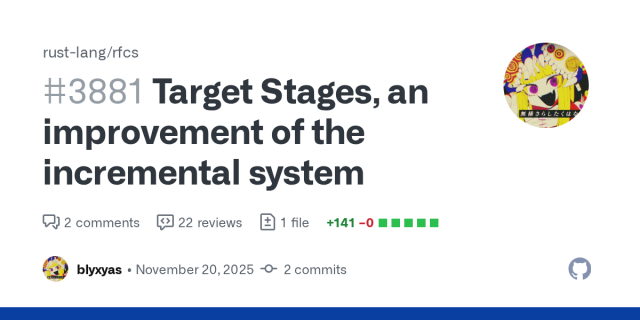
The current model for incremental recompilations doesn't share progress between compiler activities, leading to unnecessary rebuilds. This PR introduces two concepts (target stages and stage de...GitHub
After two long and painful years, several design iterations, and more than 50 rebases later, we finally merged the infamous, trauma-inducing merge request !362 on GNOME Calendar.
The calendars list in the quick-add popover has undergone accessibility improvements, providing a better experience for assistive technologies and keyboard users (to a limited extent). Specifically: tabbing from outside the list will focus the selected calendar in the list; tabbing from inside the list will skip the entire list; arrow keys automatically select the focused calendar; and finally, assistive technologies now inform the user of the checked/selected state.
Admittedly, the quick-add popover is currently unreachable via keyboard because we lack the resources to implement keyboard focus for month and week cells. We are currently trying to address this issue in merge request !564, and hope to get it merged for GNOME 50, but it's a significant undertaking for a single unpaid developer. If it is not too much trouble, I would really appreciate some donations, to keep me motivated to improve accessibility throughout GNOME and sustain myself: tesk.page/#donate
For non-accessibility-related details about this merge request, feel free to check out mastodon.social/@nekohayo/1155…
#GNOMECalendar #GNOME #GTK4 #libadwaita #accessibility #a11y #calendar #FOSS #OpenSource
Thunderbird Pro is getting closer to its Early Bird release! Find out what that means and what it includes in our latest update.
#Thunderbird #ThunderbirdPro #Thundermail #OpenSource
blog.thunderbird.net/2025/11/t…

Our team remains hard at work on Thunderbird Pro! Get the latest developments on Thundermail, Appointment, and Send, and our Early Bird plan.Ryan Sipes (The Thunderbird Blog)
LibreOffice is made by hundreds of people around the world. In many countries, we have active communities that organise events, do local marketing, and help users in their local language.Mike Saunders (The Document Foundation)
Ca. 15 Jahre nutze ich nun #ubuntu auch beruflich fast ausschließlich. Aber erst dieser Tage habe ich so richtig gecheckt, dass man dem Terminal sagen kann, in welcher Fenstergröße es starten soll:
Menü [Einstellungen]->[Profile]->[z.B. Unbenannt]->[Anfängliche Größe des Terminals]
... wieder ein Klick weniger
Happy to see this European Declaration of Digital Independence:
apell.info/2025/11/17/declarat…
Thanks #APELL #OpenSource #FOSS

Berlin, Brussels, Paris, 17 November 2025. On the occasion of the French-German Summit on European Digital Sovereignty, taking place in Berlin tomorrow (18 November 2025), more than 100 businesses, organisations, and individuals are publishing their …Sebastian Raible (APELL)
Happy to see this European Declaration of Digital Independence:
apell.info/2025/11/17/declarat…
Thanks #APELL #OpenSource #FOSS

Berlin, Brussels, Paris, 17 November 2025. On the occasion of the French-German Summit on European Digital Sovereignty, taking place in Berlin tomorrow (18 November 2025), more than 100 businesses, organisations, and individuals are publishing their …Sebastian Raible (APELL)
We’re just over half-way through the Month of LibreOffice, November 2025. And already, 219 contributors have won cool LibreOffice sticker packs! Details on how to claim them will be provided at the end of the month, but if you don’t see your name (or…Mike Saunders (The Document Foundation)
🚀 Trilium Next – nový prostor pro vaše poznámky
Na Oscloudu spouštíme Trilium Next – otevřenou appku pro chytré poznámky a osobní znalostní bázi.
📝 Co umí?
nekonečný strom poznámek 🌳
klonování (jedna poznámka na víc místech) 🌀
Markdown + WYSIWYG ✍️
šablony 📋
tagy a vztahy 🏷️
šifrované poznámky 🔒
export (MD / HTML / PDF) 📂
funguje web / desktop / mobil 📱
💡 Proč to chtít?
běží na našem serveru → plná kontrola nad daty
open source → žádný vendor lock-in
ideální pro deníky, návody, projekty, osobní wiki
docs.oscloud.cz/apps/triliumne…
#oscloud #oscloudcz #triliumnext #trilium #opensource #note #poznamky
I just donate to the @gnome project / foundation. This time I could only manage 10USD! But please if you can spare some money! Support one or more #opensource projects! It does actually make a difference!
Anti-fascistic software is made possible by pro-labor licensing.
blog.muni.town/open-source-pow…
I've been trying to write this piece for years. Every time I get started I'm just overwhelmed with paralyzing visions of the FOSS commentariat accusing me of WrongThink, more so here on the fediverse than anywhere else.
But I'm scared and tired and we urgently need to get our shit together.
It seems like yesterday we released Thunderbird for Android. See how fast our first mobile app is growing up.
#Thunderbird #OpenSource #Android
blog.thunderbird.net/2025/11/v…
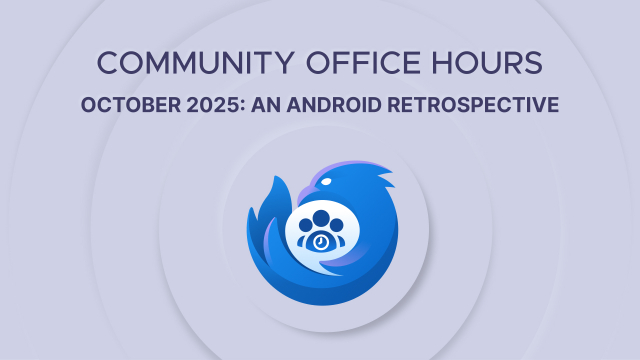
Thunderbird for Android has just turned one! Join our retrospective for what we've accomplished this year and take a peek at what's ahead!Monica Ayhens-Madon (The Thunderbird Blog)
Do you have 2 minutes?
Please consider nominating GrapheneOS and Accrescent (submit the form once for each) for the 2025 Proton Lifetime Fundraiser.
Direct link to form: form.typeform.com/to/XixQrG8Q
Learn more about the fundraiser: proton.me/blog/lifetime-fundra…
#grapheneOS #opensource #accrescent #android
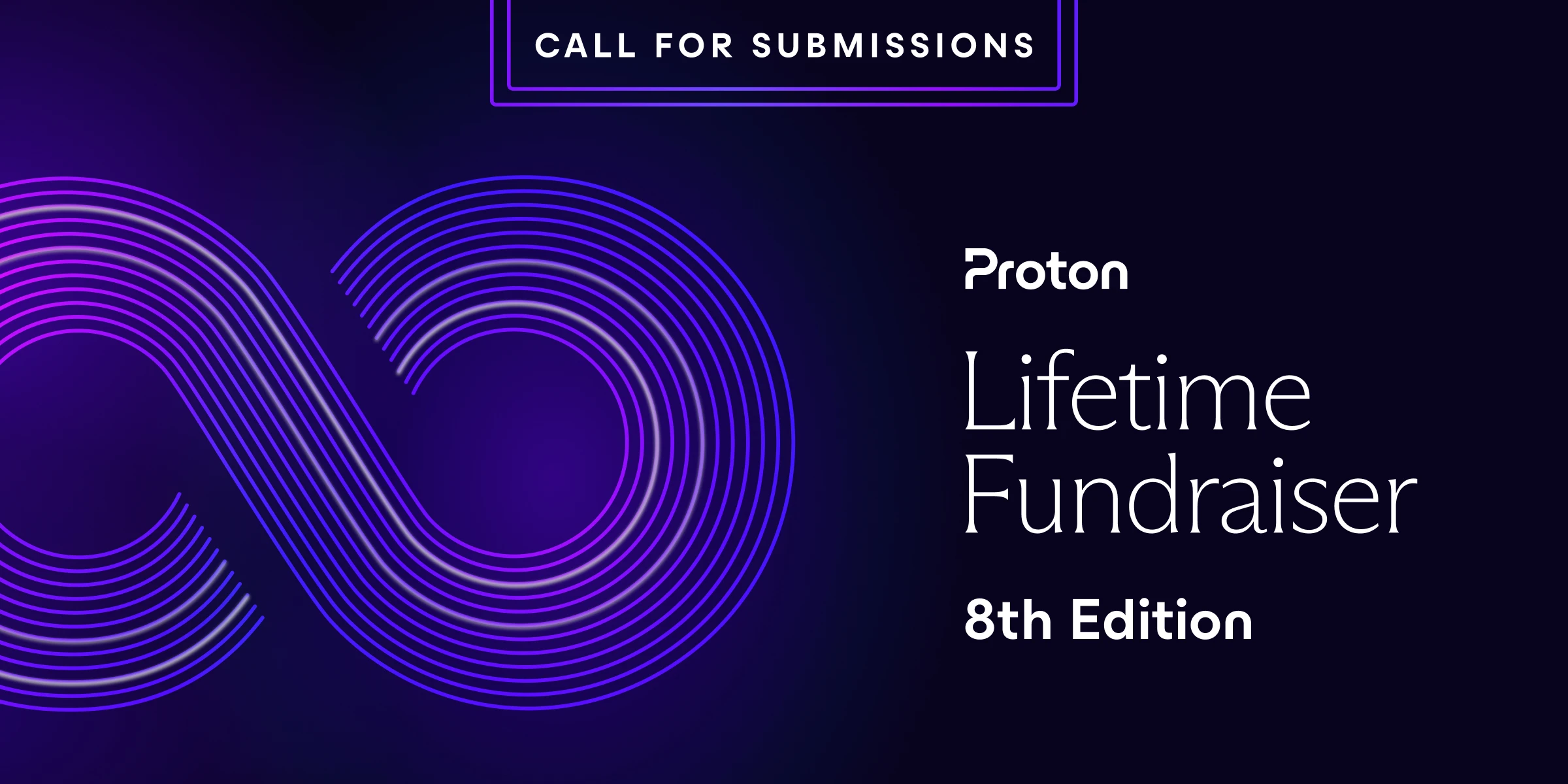
Join Proton’s 2025 Lifetime Fundraiser and help decide which organizations receive grants supporting privacy, free speech, and human rights.Irina Marcopol (Proton)

Digital sovereignty, or the ability of nations, organisations and individuals to control their own digital destiny, is a fundamental issue of the 21st century.Italo Vignoli (The Document Foundation)
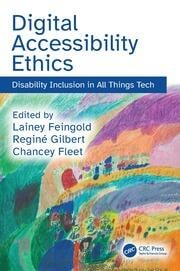
Digital Accessibility Ethics is a practical guide with an urgent goal: to help end tech exclusion of 1.3 billion people across the world with disabilities.Routledge & CRC Press
Berlin, 13 November 2025 – LibreOffice 25.8.3, the third minor release of the free, volunteer-supported office suite for personal productivity in office environments, for Windows, MacOS and Linux, is now available at www.libreoffice.org/download.Italo Vignoli (The Document Foundation)
💫 And in more recruitment news - we also have an open (PT) position for a research software engineer at the @tibosl @tibhannover, focusing on helping us orchestrate and deliver research data management services to our project partners.
🔗 Full infos here: tib.eu/en/tib/careers-and-appr…
📅 Deadline: Nov. 29.
📢 Please share widely in your networks: We offer a genuinely open, collaborative and flexible work environment, join the dream team and help us build better data services for GLAMs and open science institutes!
#openscience #opensource #softwareengineer #researchdatamanagement
Job advertisement No. 57/2025; application deadline: 29.11.2025www.tib.eu